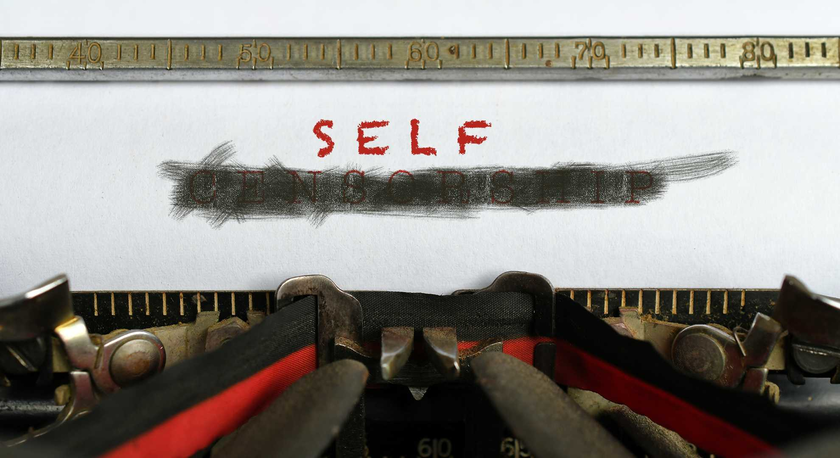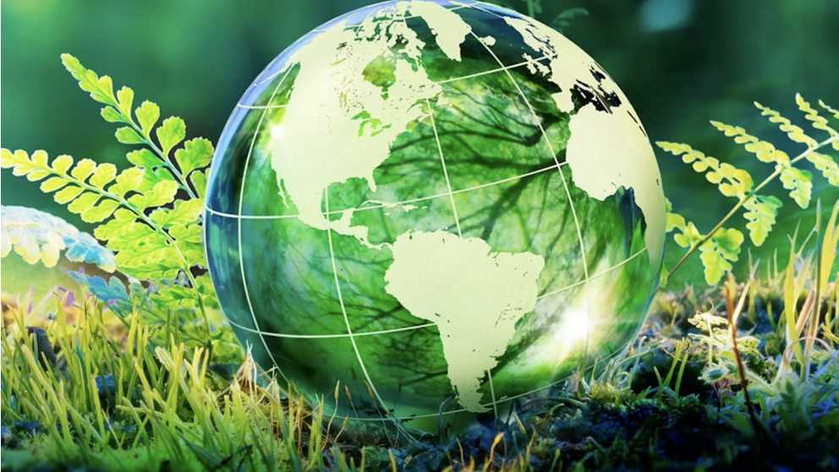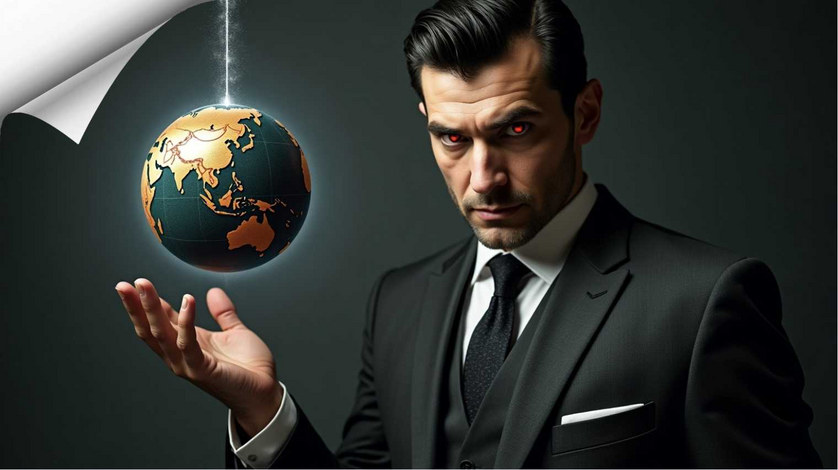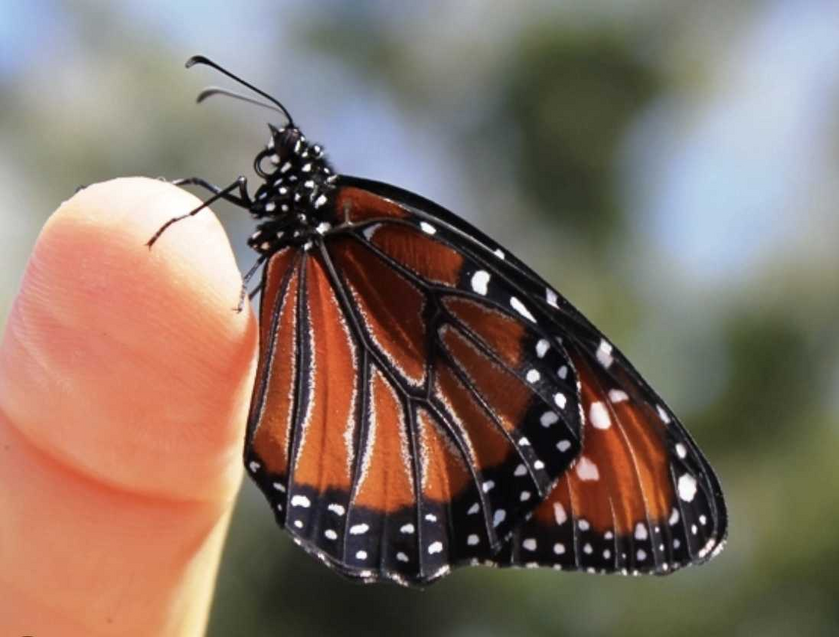by Lee Camp
The age of post-materialist superabundance is here! …Well, it could be, if we behave like adults rather than demonstrating the foresight and systemic planning of Teletubbies. I know getting us all to act like grown-ups is a bigger ask than gently requesting Mitch McConnell climb Mount Everest. (Or a staircase.) Unfortunately if we continue down the path we’re on—I’ll call it “the psycho path” for now—Then all planetary boundaries for life systems will be breached and we will have successfully ruined the only cool place to hang out for roughly 4,000 light years.
But like I said, there’s another path. One with superabundancy, security, and a future that’s like, “Ahhhhh” instead of “AAAAAAA! IT BURNS!” Journalist and showoff smarty-pants Nahfeez Ahmed put the ideas together well in his recent writings at AgeOfTransformation.org.
He says, “The empirical data shows unequivocally that, if we took the ‘pure’ forecasts of material trends and imagined that we deployed them rationally, without weird hang-ups (like nationalism), incumbent barriers (like nationalism), self-flagellating narcissism (like Trump) or regressive self-defeating culture wars (Trans Story Time will be the death of us all), we have the ability to rapidly transition to a new ecological civilization that could provide abundant energy, materials, food, transportation, Cinnabons and knowledge to all without hurting the earth.” (I added Cinnabons because why not?)
He goes on, “This looks like a new Human-Earth System in which humans stop seeing themselves as separate from each other and from the planet, but finally recognise ourselves as integrally interconnected with each other as part of the earth herself.”
In all honesty, humanity is at a fork in the road and luckily one of the prongs or tines or paths or legs—If a fork had legs but that sounds disgusting. Anyway, one of the sides of the forky road thing is really fucking awesome! Ahmed writes, “...the looming obsolescence of the industrial order is part and parcel of a civilisational-scale metamorphosis in which a whole new Human System is emerging.”
You see, the current industrial order is collapsing or fading away quickly. And bloodthirsty clowns like Donald Trump, Benjamin Netanyahu and Howie Mandel are accelerating it, but they aren’t the cause of it.
This all-encompassing phase shift could look like horrific societal collapse where we all hoard guns and tuna—Or maybe guns that shoot tuna?!— No, what would be the point of that? Damn it, I’ve always been a terrible inventor. My best invention was the “carcycle” — a bicycle attached to the roof of a car so the bike rider could go a lot faster.

But then I realized most people would probably choose to ride in the car part of the “carcycle.” And anybody riding on the bike would be slammed into a low bridge at 70 miles per hour. Then it becomes a “car-sickle”.
Anyway, humans very well could take the awful path of the fork in the road - societal collapse. Continuing to breach the last three planetary boundaries (having already breached the first six) until there’s no hope of survival. And millions of years from now maybe a new intelligent species that looks like an octopus wearing glasses will marvel at how quickly and effectively capitalism killed us all.
Alternatively, we could take the path of a breakthrough, a reinvention, a rebirth of the way humans relate to the planet and to our future. (I’m rooting for that one - even if we’re covered in a gooey afterbirth.)
Supporter only beyond here
Ahmed writes, “...industrial civilisation appears to be moving through the last two stages of its current life cycle: breakdown and renewal…” (Similar to Peter Thiel before he sheds his exoskeleton and thousands of Peter Thiel larva hatch out of his brain pupa.)
Ahmed continues, “...every fundamental technological system that defines civilization – energy, transport, food, materials and information – is experiencing a phase transition in which incumbent industrial age technologies …are on track to being outcompeted and replaced by a new set of technologies across all these sectors.”
Green energy, bullet trains, autonomous EVs, hydroponic farming, cheaper desalination processes, quantum computing, and of course A.I. girlfriends or boyfriends who won’t freaking talk over you so much and at least pretend to enjoy watching sci-fi things with dragons in them! Is that too much to ask, Catherine X57-9,000?! (When I’m really mad at her, I call her by her full name.)
And the old-school fossil-fuel based societal operating system (or OS) is antiquated and struggling to hang on to power. The petro-world is dying and the petro-dollar along with it. But can we create a new operating system before the old one destroys our planet’s ability to support us? That’s the question.
Our current OS is aimed at maximizing human consumption, AKA materialism — It’s all about how we can achieve the most materialism for the most people for the greatest number of hours per day? In layman’s terms “people gotta buy, use, and shit-out loads of stuff all the time, never pause or waver.” That’s the driving motivation in our society. Each corporation wants to figure out how to get more people using their products more often. The companies that are always growing, like a cancer, win the game. The ones that aren’t always growing, lose. (And please don’t forget… cancer is bad.)Nahfeez Ahmed says, “...this OS is simply incapable of managing a new system that is inherently networked, distributed and participatory – and that must respect planetary boundaries.”
Let me translate. Our current societal operating system… BLOWS! (I also would’ve accepted “sucks balls” or “eats dirty dung piles.”)
I’ll give an example. With hydroponic farming, food - let’s say tomatoes - could be grown locally and organically using 90% less water and one hundred percent less soil than old methods. Right now there is drought in many areas around the world. And U.S. farmlands are struggling. They look like Clint Eastwood’s upper thighs! (I just assume he doesn’t moisturize, but I could be wrong.)

Plus with hydroponics tomatoes would not need to be flown around the world and trucked across the country, using loads of resources specifically fossil fuels. These local tomatoes could then be given to people as their need requires. Instead right now, the guy with millions of dollars might buy 10 tomatoes a week (flown in from China), eat only two of them, then throw the others away because who cares? Buying more than he needs and throwing them out is no problem to him. All the problems with it are externalized—dumped onto others and the environment.
Meanwhile the portion of the population who are poor might be able to buy one or zero tomatoes. And instead they either eat cheap junk food or go hungry. In our incredibly inefficient system, “...the United States discards more food than any other country: nearly 60 million tons — 120 billion pounds — every year. That’s estimated to be almost 40 percent of the entire U.S. food supply…”
Our system is insane! It’s ludicrously wasteful. It’s ridiculously exploitative and abusive. It rewards cancerous corporations and promotes unhinged sociopaths to the top. This is an antiquated, outdated, and offensive O.S.! This operating system is like trying to run NASA mission control on an Atari game console. (Sorry. I feel bad for hitting Atari while they’re down.)
But, we have the answer. It’s staring us in the face. We know the solution—A new operating system. Not materialism. Not capitalism. Not consumerism. Ahmed states, “We are on the cusp of a ‘giant leap’ in our material capabilities as a species; but we are in danger of aborting that leap, falling into a new dark age – if not into total collapse – if we attempt to take the leap from within the outmoded framework of the old industrial OS.”

Yes, we’re trying to make this tremendous leap from an outmoded OS. It’s like trying to play in the NBA while wearing your shoes from elementary school. All of a sudden one of the best basketball players in the world can barely walk. Humanity is trying to take an unprecedented jump in our capabilities while wearing shoes from when we were seven years old. We need new shoes—which at this point, I’m 80% sure is a metaphor for systemic change.
(Like this column? You should also subscribe for free to my Substack.)



















